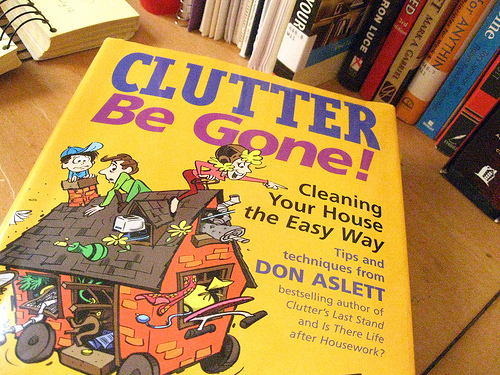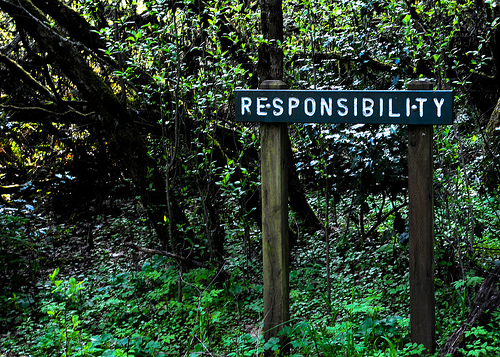When there is an addict or alcoholic in the home all sense of peace is lost. Drugs, alcohol, and the emotional turmoil that comes with substance abuse take center stage. Family members either act as if nothing is happening or fly into irrational rages while desperately searching for something to control. By the time the drug abuser is discovered, in some ways it is already too late. Without intervention the problem will probably get worse. It is rare that an addict or alcoholic wakes up one day and suddenly decides to mend his ways. He may make promises along these lines but that is usually to avoid potential consequences, not because of a sudden change in heart. Loved ones are left confused and scared, having little awareness of where to turn. Parents of addicts need tools after their son or daughter enters recovery. Abstinence does not solve all the problems created by drug abuse. With the right help parents are able to become a part of the solution while healing emotionally.
relationships
How To Cope With Emotional Turmoil With An Addict Or Alcoholic
Respond To Family Crisis: How To Avoid Drama At Home
When does a situation at home become a true family crisis? Is there a distinction between a disagreement and a fundamental problem? There are some circumstances that may be simple differences of opinion that escalate into full-blown catastrophes. Some situations that need attention get swept under the rug that lead to deeper troubles. A challenge within any family is learning how to curtail drama in order to handle conditions as they arise.
Where To Start?
One of the primary causes of family crisis is a lack of cohesion within the unit. Regardless of the make-up of a family, it is important that every individual involved be aware of the wants and needs of other members. Without clarity in this area everyone is left guessing, which only increases insecurity. This emotional instability can fracture relationships and cause long-term damage to trust. For example, when parents aren’t on the same page in terms of what is acceptable behavior, children will take advantage of this split in opinion. This isn’t because kids are naturally manipulative. It is due to the fact that human beings draw security from consistency. There are several ways to demonstrate love. One important method is clear and steady communication of values. When combined with flexibility this creates an environment of assurance and sanctuary.
Now What?
There are no relationships more important than those most immediate. One of the keys to maintaing peace and cohesion at home is having a collective awareness. Everyone may not agree on every issue but if conversations are open and honest it will be possible to resolve most problems. Begin by following a few simple steps:
- Be clear about which issues are truly important to you
- Don’t leave others guessing about how you feel
- Be willing to admit when your are wrong
- Avoid the temptation to jump to conclusions

Being able to face challenges is difficult when those you love are involved. Because of this fact it is imperative to try to think before reacting. When this is accomplished the chances for a situation to escalate are diminished. As a result, relationships grow closer and harmony is achieved.
What Is A Successful Relationship? Learn To Connect With Confidence
How do you define a successful relationship? Some would say it is a connection in which both parties see eye to eye. Others may describe it as a partnership that has mutual trust and understanding. Most agree that opencommunication is a key ingredient to a positive association. All of these opinions about successful relationships are accurate, however the most important definition you can have… is yours.
Success As You Know It
Most people inherit a partial definition of success. You may have developed one over time that works very well. It is also common to pattern relationships after those we see as children. This doesn’t mean we are powerless to change, it merely provides a basic template. As we gain our own experiences, these interpretations are either enforced, discarded or seriously challenged. In order to gain a true understanding of prosperity on any level, we must own it for ourselves. This is also true in the formation of personal and professional relationships.
Connect From A Place Of Confidence
We all experience bouts of doubt and insecurity. Every person can understand that life contains difficult challenges. One task that contains particular difficulty is establishing intimacy and vulnerability in relationships. The key is to be confident in your definitions of success, happiness and personal growth. When you are clear about where you stand, you will seek colleagues who assist you in the direction you hope to grow. Relationships, like every aspect of life, continue to evolve. Some of these natural changes will strengthen the bonds that have been established. Other transformations signal the end of seemingly strong ties. Either way, the more self-assured you are, the more you will be aware of the benefits of these evolving relationships.
Creating a clear and personal definition of a successful relationship is worth the time it takes to produce. Just remember to be confident in your own ideas, allow yourself to evolve over time and trust yourself as you use this definition to increase the joy in those you share your life with.
Remove The Clutter From Relationships:How To Release Negative Patterns
In any relationship, the process of removing clutter starts within. It begins by identifying limiting beliefs and perceptions that no longer serve a useful purpose. These beliefs and perceptions may manifest in the form of scriptsthat have been handed down for generations. It is possible to suddenly realize negative relationship patterns in several areas that have been present for years.
When these patterns become evident, there may be a feeling akin to being cluttered. The thought of a specific person may create an immediate reaction of anxiety. There may be a situation that needs to be addressed directly, but the prospect of candid communication is terrifying.This can be an indicator of limiting beliefs manifesting in relationships.
Removing the clutter allows you to determine which relationships fall into which category. With a quick assessment you may realize that there are negative patterns of behavior that you’ve wanted to change all along. You may also discover that there are destructive relationships you’ve wanted to end. However, you’re not going to know that until you stop for long enough to do an accurate assessment. Some of these take a simple decision to change, followed by a plan of action. If you were cleaning your garage you would notice items out of place along with things you just want to get rid of. See box; remove box. Discover C-clamp; place on shelf.The same is true when taking inventory of relationships. Some may require more effort and extra help, but the willingness to take an honest look gets you started. Relationships are like spring cleaning in that once you have a plan and begin putting in the work, it flows. Your confidence builds. Your self-esteem builds. You see some changes go on in your life.
It is possible to stop tripping over the emotional boxes in your life. There will be relationships you rediscover andconnections that will be strengthened. You will be able to finally deal with toxic relationships that take up unwanted space in your head. You will be open to more possibilities. Removing the clutter creates the space needed to welcome what’s new and possible in your life. You’ll be amazed, as you remove the clutter, what opportunities begin to show up.
Intimacy In Relationships: Is It A Challenge Or A Chore?
How do you view establishing intimacy in relationships? Do you view it as a way to challenge yourself and stretch your emotional muscles? Or do you view it as a daunting chore which will never be accomplished?Depending on where you stand with this issue says a lot about the level of closeness in your relationships. Intimacy can be an easily misunderstood and scary topic to discuss but it is a critical ingredient in a complete life.
Intimacy In Context
Intimacy is defined as close familiarity or friendship. It is established by being engaged and connected with others. This engagement allows vulnerability for both involved parties. Most people would agree that the establishment of a deep level of closeness enhances the quality of life. Any successful relationship involves a degree of intimacy. This applies to personal, professional, and romantic relationships.
Rising To The Challenge
When a fear of intimacy is identified the task then becomes determining how to transcend the aversion in order to establish bonds. Usually this fear is rooted in the belief that others aren’t trustworthy and will inevitably cause pain. This can be overcome by realizing that each relationship is unique and shouldn’t be based on situations from the past.
Face The Fear With Fun
Establishing intimacy does involve emotional risk. For many, the risk involved strikes terror. As with anything else, an attitude of fun and enthusiasm allows some of the fear to subside. Some examples of facing these fears with an attitude of fun include:
- spending time with people doing things you both enjoy
- laugh with people….. a lot
- approach people who seem to be relaxed and approachable

Getting close to people doesn’t have to feel like work. It is difficult for most people. With a change in attitude, establishing intimacy in relationships can become a challenge worth accomplishing. How can you change your perspective in this area?
Do You Have Relationship Trust? How To Connect With Confidence
Relationship trust can be elusive, particularly for those who have been hurt in the past. Although trust can be an ambiguous quality, it is vital in creating meaningful and lasting connections. Anyone with a strong desire to build relationship trust is capable of finding the necessary steps to do so. These steps include identification of past hurts, the willingness to let these feelings go, and the determination to seek and find people with whom it is possible to build relationship trust.
Establish Self-Trust
“Self trust is the first secret of success.” ~ Ralph Waldo Emerson
The first area to explore is trust with self. Often a person has difficulties building confidence in others due to a lack of trustworthiness. If honesty or integrity have been a challenge there will be an innate mistrust of others. The development of personal honesty in all interactions is the first priority.
Let Go Of Past Hurt
It is common for people to establish negative relationship patterns due to pain from past experiences. Many fear that acknowledging these situations is the equivalent to opening Pandora’s box. In reality, the toxic memories are kept alive through denial. In order for the past to lose its grip on today’s decisions these painful recollections must be accepted. Once they are accepted it is possible to let go of these feelings by following some simple, although challenging, steps:
- Make a list of painful memories
- Seek a counselor, coach, spiritual advisor, or friend with whom these memories can be shared
- Follow the advice of this trusted advisor to establish positive patterns in the present

Relationship trust is essential to establishing strong bonds. These deep connections are vital to a fulfilling and rich life. It is always an option to find a more positive direction particularly when there is a willingness to seek help and guidance.
Are Relationships 50/50? How To Build Connections For Happiness
The belief that relationships are 50/50 is based on the premise that a positive and productive relationship is formed where two people meet at a half-way point.This belief can be dangerous because responsibility for one’s happiness is placed on another person.
Another problem in a 50/50 dynamic is the possibility of someone “keeping score.” When this is the case one party may withhold affection or build a resentment due to feeling like the relationship is out of balance. There can be an unwritten rule that “you owe me one.” In order for a relationship to feel whole each party needs to be aware of his role. An attitude of service is diminished when someone feels that the favor must be returned.
If people are dependent upon others to “complete” them, it can be difficult to feel emotionally balanced without people performing for their satisfaction.Although it can be painful when a positive deed is not reciprocated the spirit of helpfulness shouldn’t be based solely on the philosophy of quid pro quo.
Although some relationships begin as a result of one person’s needs and another person’s ability to meet those needs, it still requires 100 percent participation in order for the relationship to become positive. Once a person finds someone who can help, he begins to open himself up and communicate what his needs are. The person who is able to meet these needs then empowers the other to make any necessary changes in life to move forward and deal with that problem.
 This is not a 50/50 proposition. It is as a result of each person giving 100 percent. Both involved parties begin therelationship with some specific individual goals. Each individual finds a level of compatibility with the person to whom they are attracted. The relationship is able to begin in a healthy way because of this understanding. Do you believe relationships are 50/50?
This is not a 50/50 proposition. It is as a result of each person giving 100 percent. Both involved parties begin therelationship with some specific individual goals. Each individual finds a level of compatibility with the person to whom they are attracted. The relationship is able to begin in a healthy way because of this understanding. Do you believe relationships are 50/50?
Are Relationships Hard? How To Remove Negativity From Responsibility
A fundamental belief is that relationships are “hard work” and involve “sacrifice and compromise.” While building connections on any level can be a challenge , these negative attitudes are prevalent in today’s society because many people struggle to take responsibility for their own situations. It has become increasingly more common for people to blame someone or something else for their plight in life.
Forming unions is harder when someone is unwilling to accept that his decisions, words, and actions have a ripple effect. All relationships involve two people coming together, therefore flexibility is critical. This doesn’t necessarily mean that there must be “hard work” in order for a relationship to be successful. If a bond is extremely difficult to maintain, it is possible it shouldn’t exist. Before making that determination, however, it is imperative to make an honest self-appraisal.
- Taking responsibility for actions and words is key.
- Relationships are always a reflection of a person’s current state of mind.
- When someone feels conflict with another person, the first responsibility is to look within himself to determine whether he has somehow wronged the other person.
- If he discovers that his actions have been clean, he can find comfort in the awareness that his behavior or attitude is not at the root of this conflict.

Continuing to attempt to engage another person in conversations about conflicts may perpetuate the problem. At that point it can be helpful to take a step back and allow the other person the freedom to work out whatever issues they may have.Most people want to be liked; so this can be challenging. The other person may not respond positively and the disagreement may not be solved. A few points that may be helpful include:
- The only actions anyone can truly control are his own.
- Building relationships can be complicated.
- In order to build strong relationships one must take responsibility for his own actions.
With this perspective and responsibility the building and maintaining of relationships is more a challenge than a chore. Removing the fear makes the entire experience much more rewarding.
Be Honest With Yourself: Your Responses Create Your Reality
To begin the process of self-discovery it is vital to recognize the areas of your life that need some direct attention. When you are able to be honest with yourself about what these areas are, you will begin to find the power to initiate change. Positive responses to awareness rely on the willingness to face whatever qualities may be hindering your personal growth and development. A common hurdle is believing other people have caused your life to be less than what you want.
The Danger Of Blaming Others
If you find yourself blaming others for your loneliness or if you are in constant conflict with other people, look closely and see whether you can be honest with yourself. Remember that it is impossible for anyone to control what you say or do. Realize it is only you creating your problems. Your current situation, good or bad, is a result of a series of decisions you have made and actions you have taken. It is also a result of either negatively reacting or positively responding to your emotions. You are not a puppet on strings or a trained animal. Although past circumstances have a part to play in how you have developed, your reactions create your reality. Ultimately your life is yours to own.

Begin To Take Responsibility
In order to move away from the victim role it is important to pause and take a deeper look at how you may experience conflict in your relationships today. A simple exercise to find clarity may include:
- Take inventory of those relationships creating conflict in your life.
- Be honest about your part in this conflict. What can you change in order to feel balanced within these relationships?
- As you make changes be aware of how much less you are concerned about the behavior of the other person.
It may not always feel like you have a choice as to how you react or respond, but you always do. Be patient with yourself and others. Take the time to think through how to best handle whatever situation you find yourself in. Ultimately you will find more peace and all of your relationships will benefit.
How Successful Relationships Create Life Balance
How do you define a successful relationship? What role do you believe your relationships play in your perspective on life? Successful relationships definitely play a major role in achieving healthy life balance. One key is realizing how you view connections with other people.
How Perceptions Are Formed
There are many kinds of relationships we will engage in throughout our lives. There are several factors involved in how we form our perceptions of these relationships. We learned a lot from our families which provided most of us with a foundation to operate from every day. We learn from our peers. We learn from mentors and others we admire. Most of us hear stories about other people’s lives and find bits and pieces we would like to emulate. Because there are so many influencers in our lives we must pay attention to how we are affected by these sources of input.
There are many facets to anyone’s life and several variables involved in any decisions made. With all of this information the simplest decisions can become convoluted. As a result it is easy to become indecisive and sometimes stuck. Therefore it is crucial to make things as simple as possible in order to gain clarity.

The Role Of Relationships In A Balanced Life
Relationships can be very complicated, and these complications are increased when your life is out of balance. Balance is achieved through being aware of your belief systems and noticing how they affect your physical, emotional and spiritual states. Belief systems include everything from perceptions of spirituality to the value of money. When you have a strong belief about something, you form your opinions, make decisions and form relationships based on these beliefs. As a way to figure out an area of your life which may need attention:
- On a piece of paper draw three columns, title one physical, the next emotional/mental and the third spiritual.
- Write down ways you nurture each part of your life.
Following this simple formula will give you an idea of what may be out of balance in your life and which areas need more focus. This will provide you with insight into which relationships in your life need to be nurtured and which may need some clarification of boundaries. We are all affected by people in our lives. By achieving a level of balance we are able to control how deep this influence goes. How do you find balance?
Photo Credit: klimari1 (JUST SHOOT IT! Photography) via Flickr